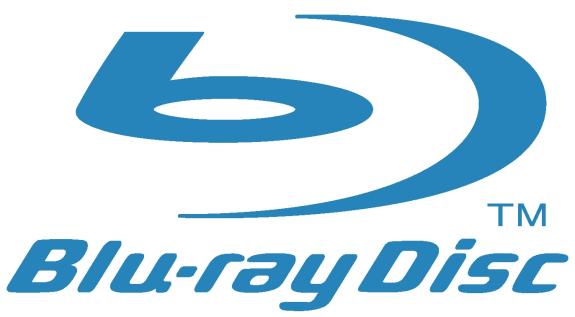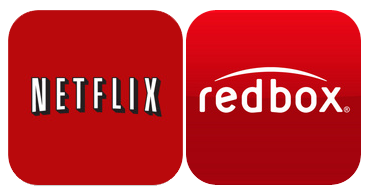Cinavia DRM: How I Learned to Stop Worrying and Love Blu-ray’s Self-Destruction
by Ganesh T S on March 21, 2012 11:00 AM EST- Posted in
- Home Theater
- Blu-Ray
- DRM
- Cinavia
DRM (Digital Rights Management) is intended to protect media from being played in an unauthorized manner. However, more often than not, it fails to serve the purpose. Many people in the content industry are fully aware that it is not possible to stop media piracy. They view DRM as a method to slow down the pirates. The panel discussion on anti-piracy measures at the HPA 2011 Tech Retreat compared this to using a key to lock a car, even though a thief with proper equipment could still steal it.
High definition content is valued by the content owners, resulting in extra efforts being taken to protect them from being pirated. For example, while standard definition Netflix streams play on a variety of platforms, high definition streams require more secure systems with protection across all stages of playback. Similarly, not much effort has been taken to stop the usage of open source DVD decrypters / decoders, which mean that the consumer doesn’t need to invest in a licensed player to play back DVDs. Open source software like VLC can play back protected DVDs without any issues.
Blu-rays, on the other hand, with their high definition content, are yet to be hacked enough to be played back with full experience using open source tools. There is a constant tussle going on between the decryption tool makers (who enable the Blu-ray disc content to become unprotected) and the Blu-ray publishers who don’t want this to happen (and try to find new ways to encrypt their Blu-rays without breaking player compatibility in the field). The net result is that almost every new Blu-ray fails to play back on a player if it doesn’t have the latest firmware updates. This is obviously a drawback for consumers who just want to put the disc in the tray and enjoy the movie.

In today’s piece, we will be concentrating exclusively on Blu-rays. A look at the market trends seems to indicate that online streaming services like Netflix and Hulu are overtaking conventional media distribution channels such as DVDs and Blu-rays. However, this doesn’t mean that optical media will die out anytime soon. Currently, a large number of consumers don’t have reliable enough Internet access to guarantee a good experience with premium streaming services. Market research indicates that Blu-ray sales have indeed shown an annual increase. This growth can be attributed to the low cost of Blu-ray players (some could be found for as low as $49 last November) and the rising number of $5 Blu-rays available in the bargain bins of various big box retailers. Blu-ray rentals from companies such as Redbox have also shown an increase in popularity.

The BDA sees Blu-ray shipments growing for the foreseeable future. However, they have also realized that the future of the Blu-ray industry lies in eventually adapting to the cloud / Internet infrastructure. The UltraViolet initiative is geared towards this. We will look at this in detail later in the piece.
The rise of VoD services will definitely threaten Blu-ray, particularly because of the ease of use associated with them. In almost all cases, one can start watching a movie on Netflix or Vudu with a few clicks. Compare this with current Blu-rays where users have to put up with a number of trailers and copyright messages before the movie starts playing. It is no wonder that consumers with high speed Internet often prefer services like Vudu over Blu-rays. Given this situation, Blu-rays continue to come with pesky DRM mechanisms. The latest in this lineup is Cinavia. Before going into its details, we will have a brief overview of all the DRM mechanisms involved in Blu-rays.










121 Comments
View All Comments
medi01 - Wednesday, March 21, 2012 - link
It's been a while that companies do some shady stuff vs legit customers in the name of "fighting piracy", but it's depressing to see nobody notices. No LAN play "to fight piracy" by Blizzard (in fact, they simply wanted to have share of what Korean Starcraft channels earn), "you gotta be online to play this game" => say goodbye aftermarket.Oh, and the most hilarious "stuff recorded on this TV can only be played on this TV". Niiice. That will show them, the evil pirates with blue-ray rips. Remind me why do we still use HDMI with all the "advanced encryption"?
titanmiller - Wednesday, March 21, 2012 - link
How are consumers expected to update their firmware if they don't have home broadband internet?My parents live in a rural area and have to use a USB 3g internet provider. There isn't any easy way to connect their blu-ray player to the internet for it to download a firmware update.
gigahertz20 - Wednesday, March 21, 2012 - link
Screw all the ridiculous high prices for bluray movies, get a fat pipe internet connection and usenet provider and you're set. BTW, for those looking to ditch torrents and get into usenet, Astraweb has a new plan, $50 for 1TB of downloads. Of course, if you download a ton, then get the unlimited plan for $9-11 a month.andy o - Wednesday, March 21, 2012 - link
"Thomson's NexGuard is a type of video watermarking scheme which works with the help of the BD+ SVM. The BD+ content code embeds some invisible information in the video track which contains details of the player / drive used to decrypt the stream."I can't think of a blu-ray rip that would include this watermark. How could it, if the rip is not taken from the video feed, the file itself is decrypted with a drive that's not a BD-video drive (a proper BD player)? Am I missing something, or are they that clueless that they think people are pirating by connecting their players' video outputs to a VCR?
Farfle - Wednesday, March 21, 2012 - link
You forgot "or" in the title, right before the colon.p05esto - Wednesday, March 21, 2012 - link
I freaking HATE Cinavia protection. I ripped my entire DVD/BluRay library to digital MKV files (hundreds of movies) and have been using a Samsung 6500 BluRay player to stream the movies from my home server. I have three of those players in the house and everything had been awesome....until recently. About a month ago a recent firmware ADDED the Cinavia protection to the Samsung player and now many of my movies no longer play and I get those stupid Cinavia protection errors.Anandtech PLEASE raise hell, raise awarness about this evil technology. Consumers should be able to rip their old school discs to digital files without having to deal with horrid DRM getting in the way of enjoying a movie.
And a warning to users to stay away from Samsung. They crippled my devices a year after I bought them with this new Cinavia protection. They took away functionality and are evil bastards for doing so. I believe a lawsuit is in order, you can't sell a product and then a year later disable the main feature I use it for and get away with that crap. Who's with me???
Blibbax - Wednesday, March 21, 2012 - link
The industry sure does do an excellent job of making TPB more attractive.blowfish - Wednesday, March 21, 2012 - link
None of the shenanigans of the BDA surprise me - the industry is run by Shylocks, for whom money is everything.AbRASiON - Wednesday, March 21, 2012 - link
I hope so, I'm planning to move to XBMC (instead of my PS3) for this very reason over the coming months.ComputerGuy2006 - Thursday, March 22, 2012 - link
I took off my pants, bent over the table and allowed several sites JS access to my PC... and I still cant view the videos... Why not use utube?